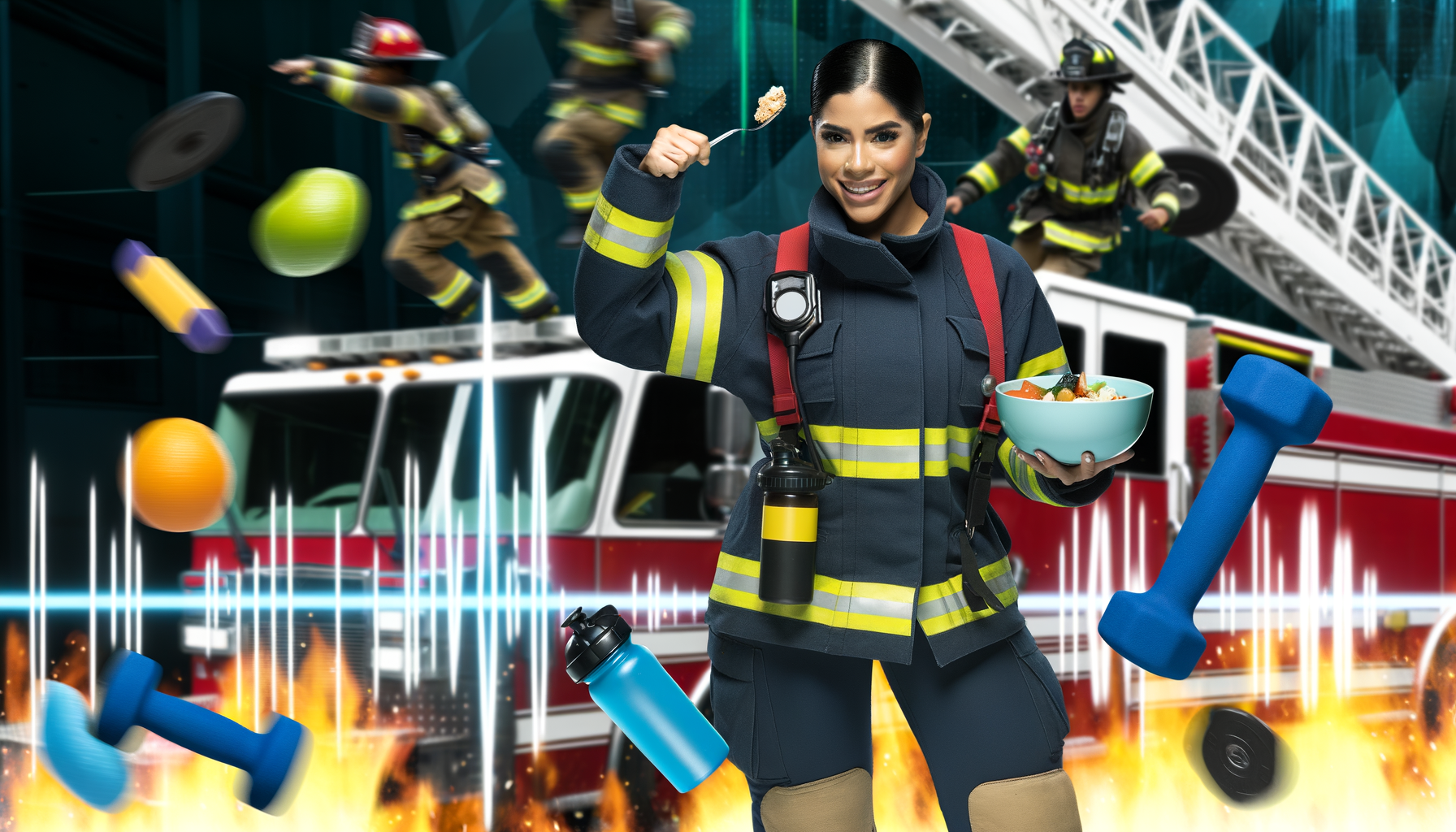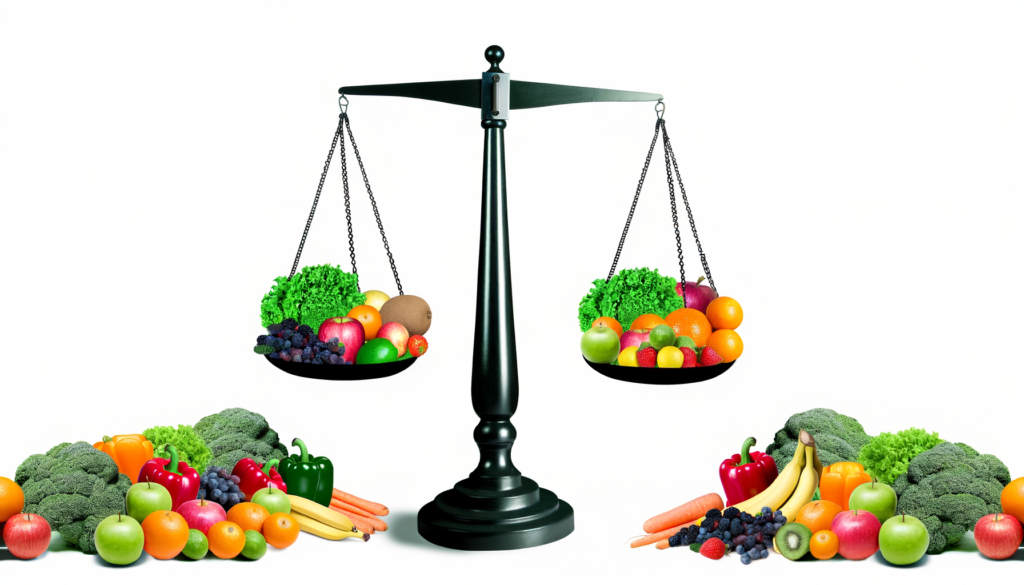The Critical Role of Nutrition in High-Stress Occupations
Emergency responders, including firefighters and emergency medical technicians, operate in some of the most demanding and high-stress environments. Their roles require peak physical and mental performance to ensure they can respond effectively to emergencies and protect both themselves and the public. One of the key factors in maintaining this high level of performance is proper nutrition, particularly through effective calorie tracking.
High Energy Expenditure of Emergency Responders
Emergency responders engage in extremely physically demanding activities. For instance, firefighters during emergency responses and training exercises can expend a significant amount of energy. Studies have estimated that the total energy expenditure (TEE) of firefighters can range from 3000 to 4000 kcal per day, comparable to that of professional athletes.
Wildland firefighters, for example, may require as many as 4400-6000 calories per day to meet their energy needs. This high energy expenditure highlights the need for rigorous nutritional strategies that match the demands of their job. The average TEE during large-scale disaster training has been reported to be around 3619 kcal per day, with rescue teams and other specialized units expending even more energy than fire and Emergency Medical Team (EMS) teams.
The Importance of Calorie Tracking
Calorie tracking is not just about counting calories; it is about ensuring that emergency responders are fueling their bodies with the right amount and type of nutrients to perform at their best. Here are some benefits of calorie tracking for first responders:
Optimized Performance
By tracking calories, emergency responders can ensure they are consuming the right amount of energy to perform their duties without fatigue. This is particularly important during prolonged operations or multiple calls in a single shift.
Weight Management
Calorie tracking helps in maintaining a healthy weight, which is crucial for reducing the risk of chronic diseases and improving overall health. A healthy weight also enhances physical performance and reduces the risk of injuries.
Improved Recovery
Proper nutrition, facilitated by calorie tracking, aids in faster recovery after strenuous activities. This is essential for emergency responders who may have to respond to multiple emergencies in a short period.
Enhanced Mental Clarity
A well-balanced diet, achieved through effective calorie tracking, can improve mental clarity and focus, which are critical for making quick and accurate decisions in high-stress situations.
Using Calorie Calculator Cloud for Advanced Diet Strategies
Tools like the Calorie Calculator Cloud can be instrumental in helping emergency responders tailor their nutrition plans to their specific needs.
Personalized Calorie Plans
The calculator can provide personalized calorie plans based on individual factors such as age, weight, height, and activity level. This ensures that each emergency responder gets the exact amount of calories they need to perform optimally.
Meal Planning
It offers meal planning features that suggest balanced and nutritious meals, taking into account the dietary preferences and restrictions of the user. This helps in ensuring that meals are easily digestible and provide sustained energy before, during, and after shifts.
Tracking Progress
Users can track their daily calorie intake and progress over time, making adjustments as necessary to ensure they are meeting their nutritional goals. This continuous monitoring helps in maintaining optimal nutrition and performance.
Integration with Other Health Tools
The calculator can be integrated with other health and fitness tools, such as Fitbit fitness trackers or health apps, to provide a comprehensive view of one’s health and performance.
Nutritional Strategies for High-Stress Roles
In addition to calorie tracking, several other nutritional strategies are crucial for emergency responders:
Incorporating a variety of foods in the diet ensures that emergency responders get all the essential nutrients. This includes colorful fruits and vegetables, whole grains, lean proteins, and healthy fats. These foods not only support physical health but also have a direct impact on mental wellbeing.
Hydration
Adequate hydration is crucial, especially in hot environments. Emergency responders need to consume plenty of water and electrolyte-rich beverages to replace lost fluids. Dehydration can lead to fatigue and decreased cognitive function, which are detrimental in high-stress situations.
Timing of Meals
The timing of meals is critical. Emergency responders need to eat meals that are easily digestible and provide sustained energy before, during, and after their shifts. Skipping meals can lead to energy crashes and poor concentration, which are undesirable in high-stress roles.
Smart Snacking
Choosing snacks that provide a steady source of energy is important. Nuts, seeds, yogurt, and fruit are great options. Avoiding high-sugar snacks that can cause spikes and crashes in blood sugar levels helps in maintaining stable energy levels throughout the day.
Real-World Examples and Case Studies
To illustrate the effectiveness of calorie tracking and nutritional strategies for emergency responders, let’s look at a real-world example:
A fire department in a metropolitan area implemented a calorie tracking program using the Calorie Calculator Cloud. The program involved creating personalized nutrition plans for each firefighter based on their specific needs and activity levels. After six months, the department reported a significant improvement in the overall health and performance of the firefighters. There was a noticeable reduction in fatigue during long shifts, and the incidence of injuries decreased due to better physical conditioning and faster recovery times.
Additional Resources for First Responder Nutrition
Besides using calorie tracking tools, emergency responders can benefit from various other resources to enhance their nutritional strategies:
National Fire Protection Association (NFPA)
The NFPA provides guidelines and resources on nutrition and fitness for firefighters, including recommendations on calorie intake and meal planning.
American Heart Association (AHA)
The AHA offers dietary guidelines that are beneficial for first responders, focusing on heart-healthy foods and hydration strategies.
USDA ChooseMyPlate
This resource from the USDA provides a simple and effective way to ensure balanced meals, which is crucial for maintaining optimal nutrition.
Physiological Monitoring Systems
Physiological monitoring systems, as assessed by the Systems Assessment and Validation for Emergency Responders (SAVER) program, play a crucial role in monitoring the health status of firefighters during strenuous activities. These systems help in determining when firefighters are experiencing life signs that pose a risk to their health and/or safety, which can be directly linked to their nutritional status.
Conclusion and Next Steps
In conclusion, calorie tracking is a vital component of first responder nutrition, enabling firefighters and emergency responders to perform at their best while maintaining their overall health. By using tools like the Calorie Calculator Plans and integrating them with other health resources, first responders can optimize their nutritional strategies and enhance their performance in high-stress occupations.
If you are a firefighter or emergency responder looking to improve your nutrition and performance, consider exploring the resources mentioned above. Start your journey towards better health and performance today by leveraging the power of calorie tracking and balanced nutrition.
For employers, creating a health-conscious work environment that supports nutrition and stress management can significantly enhance employee well-being and productivity. By offering nutritious snacks, providing access to nutritional resources and education, and promoting a culture of health, employers can help their employees manage stress and perform at their best.
In the fast-paced, high-pressure environments that emergency responders navigate daily, nutrition is a key player in the resilience and performance equation. By making informed choices about what they eat, emergency responders can unlock levels of resilience and performance previously thought unattainable. It’s time to shift the conversation around nutrition from one of mere sustenance to one of strategic performance enhancement. By embracing a diet that fuels both body and mind, individuals in high-stress roles can meet the demands of their roles with confidence and resilience. Let’s not just eat to live—let’s eat to thrive.








